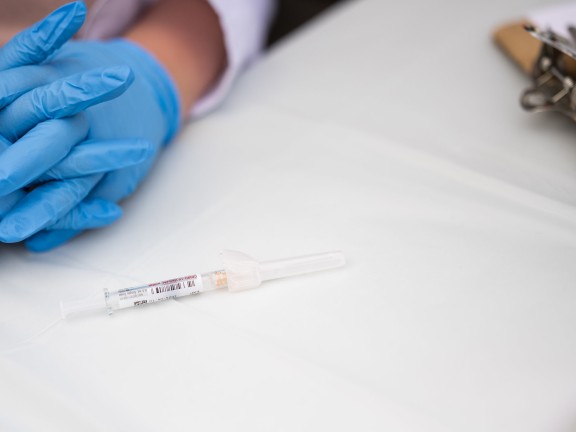Vaccines 101

Vaccinations provide critical protection for your child and are entirely safe!
Vaccines are one of the best ways to keep your child safe and healthy. On-time vaccinations provide critical protection for your child and are entirely safe! When your child receives a vaccination, it activates their immune response so their body can learn to fight off and remember diseases when they encounter them.
The American Academy of Pediatrics (AAP) along with the Center for Disease Control (CDC) recommend a standard vaccination schedule for children 3 years of age and under. This schedule typically includes the following vaccinations:
Birth:
- Hepatitis B (HepB): First dose shortly after birth, followed by additional doses as per the schedule.
2 Months:
- HepB: Second dose.
- DTaP (Diphtheria, Tetanus, Pertussis): First dose.
- Hib (Haemophilus influenzae type b): First dose.
- PCV13 (Pneumococcal Conjugate): First dose.
- IPV (Poliovirus): First dose.
- RV (Rotavirus): First dose.
4 Months:
- DTaP: Second dose.
- Hib: Second dose.
- PCV13: Second dose.
- IPV: Second dose.
- RV: Second dose.
6 Months:
- DTaP: Third dose.
- Hib: Third or final dose (depending on vaccine type).
- PCV13: Third dose.
- IPV: Third dose.
- RV: Third dose (if needed).
12 Months:
- MMR (Measles, Mumps, Rubella): First dose.
- Varicella (Chickenpox): First dose.
- HepA (Hepatitis A): First dose (may be given between 12-23 months).
15 Months:
- DTaP: Fourth dose. Hib: Final dose (if needed).
- PCV13: Final dose (if needed).
18 Months:
- HepA: Second dose (6 months after the first dose).
This is a general overview, and the exact schedule and recommendations may vary based on individual circumstances and the advice of your child's healthcare providers. It's essential for parents and caregivers to consult with healthcare professionals to ensure that children receive the appropriate vaccinations according to their age and health status.
Influenza (Flu) Vaccine
It is recommended that everyone age 6 months and older get the flu vaccine each season which typically begins in October is ends in May. Flu is highly contagious and can be particularly dangerous for infants, immune compromised individuals and the elderly. Talk to your child’s pediatrician about when they should receive their flu vaccine.
COVID-19 Vaccine
It is recommended that everyone age 6 months and older get the COVID-19 vaccine. Although serious illness is not common for children under 3, the illness can have serious and lasting effects on a child’s health. Talk to your child’s pediatrician about when they should receive their COVID-19 vaccine and/or booster.
Vaccines during Pregnancy
Vaccines during pregnancy are important to help protect you and your baby. Vaccines like the flu shot and Tdap (tetanus, diphtheria, and pertussis) are safe and help prevent serious illness. They also provide your baby with antibodies that last through the first few months of life. Talk to your healthcare provider to find out which vaccines you should receive while pregnant.
Learn more about each vaccine with the file links below.